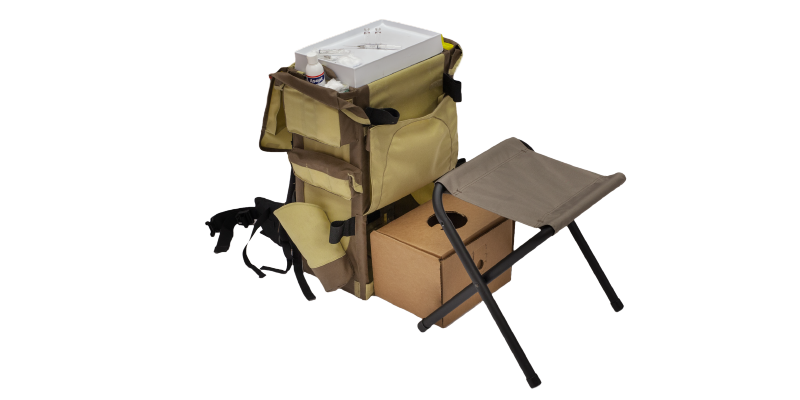Unicef, CareSquare, 2013

CareSquare is a "Clinic-in-a-backpack" that enables healthcare services to get closer to mothers who would never visit health centers and not get access to medical care.
In terms of overall child development, the years from birth to age five are the most important. In many countries around the world, these years are also the most dangerous. Each year in the developing world, millions of children under five die due to preventable causes such as inadequate sanitation, insufficient medical care or a lack of clean water. Healthcare organizations have identified the five main dangers to children in this age range as malaria, diarrheal disease, pneumonia, complications during pregnancy, and complications during birth. Creating a solution for even one of these problems has the potential to slash child mortality rates by a significant margin.
Alongside our partner, the UNICEF Innovation Unit, our team of four engineering students from Stanford University and four multidisciplinary students from Aalto University is determined to fight child mortality. Our team visited Nigeria, a country with child mortality rates among the highest in the world. The team travelled in two parts in different times, but came to one conclusion: the biggest challenge, in fact, is the large number of mothers who never visit the health centers, thus not having the right knowledge about child health nor access to medical care.
To tackle this problem we developed a solution to bring the healthcare services closer to the mothers. This is achieved by CareSquare, a portable healthcare station the health worker can carry as a backpack to communities. To achieve the highest impact, our product focuses on the three biggest problems with child healthcare in Nigeria: low vaccination rates, malaria and diarrhea.
With the CareSquare the healthcare worker is able to give vaccinations, distribute malaria and diarrhea medication, and share information about taking care of the child with the mothers in their everyday environment. To increase the trust between the community and the healthcare system, our solution also includes a contact person from the community, who informs the community when the healthcare worker is coming and also joins on the actual day to help with the organizing.
The CareSquare will close the gap between the healthcare system and it’s users that currently exists. It will help to increase the vaccination rate of Nigeria (which is alarmingly low at 63%) and also help to fight malaria and diarrhea. In the future the CareSquare can be modified and used to save the lives of children in other contexts in the developing world.


